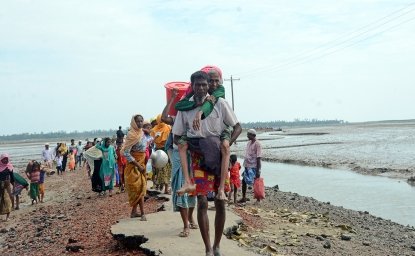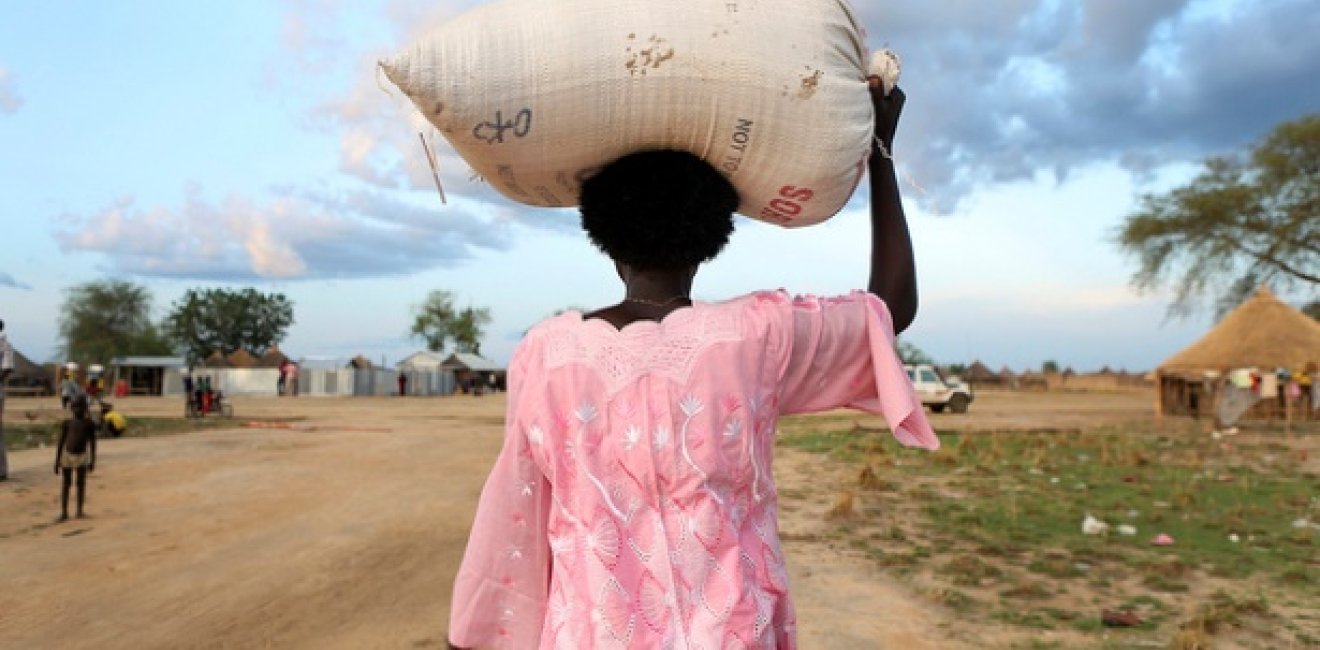
A blog of the Wilson Center
Humanitarian officials estimate that Sudan needs $2.7 billion in humanitarian assistance this year. Only 18% has been raised.
Each and every day, news services carry heartbreaking stories of conflict and crisis throughout the world. The Israel-Hamas war has left thousands dead and hundreds of thousands in urgent need of humanitarian relief in the Middle East. Russia’s brutal war in Ukraine has displaced 10.2 million and left 14.6 million in need of assistance across Europe. Criminal gangs control 80 percent of Haiti’s capital city and there are an estimated 5.5 million people in need.
But somehow, what may be the world’s worst humanitarian crisis has received very little media attention. Sudan doesn’t have the same diaspora connections as Europe and the Middle East. It isn’t close to our shores like Haiti. But on the list of highest levels of human suffering—a list nobody wants to be on—it might just top them all.
Sudan is the site of the world’s largest displacement crisis. According to the 2023 Global Trends report by the UN’s refugee agency, Sudan hosts 9.1 million internally displaced people—the highest number ever recorded in one country. Of the 1.8 million refugees who have left the country, 6 out of 7 are being hosted in neighboring countries like Chad and South Sudan, which are suffering their own hunger and poverty crises.
More than 25 million people in Sudan (14 million of whom are children) are in need of humanitarian assistance—more than Ukraine, Gaza, and Haiti combined. Combined. UNICEF Executive Director Catherine Russell said in June that 9 million children in Sudan regularly don’t get enough to eat, and nearly 4 million face acute malnutrition. UNICEF warned that around 220,000 children could die there in the coming months.
What the crisis in Sudan has in common with Ukraine and Gaza is that it didn’t have to happen. The crisis is entirely human caused, and greed driven. It’s about power, plain and simple.
Sudan is entering the second year of a gruesome civil war, the third civil war since its independence in 1956. Two rival armed factions—the Sudanese Armed Forces (SAF) and the Rapid Support Forces (RSF)—are engaged in a power struggle for control of the state and its resources, abandoning all of the plans for civilian leadership and national elections agreed to in a December 2022 deal. Fighting began in the capital of Khartoum in April 2023, and has spread rapidly across the country, thus far killing almost 15,000 people and injuring well over 30,000. The hostilities have also made the day-to-day of humanitarian officials extremely perilous. The UN World Food Program recently reported that armed gangs had attacked a food convoy heading for the country’s Darfur region.
Since the beginning of the civil war, the SAF and RSF have entered into several US- and Saudi-led peace negotiations to broker a ceasefire, all of which failed. Influence from external actors—including Iran and militia/mercenaries formerly known as the Wagner Group—has only added fuel to the fire. Outside groups are arming each side of the conflict seemingly to enhance their own leverage, which has also worked to delay any cessation of fighting. Speaking at the Wilson Center, which hosts the Sudans Working Group, US Special Envoy for Sudan Tom Perriello emphasized in May that the perspectives of Sudanese civilians, rather than generals or externals actors, are critical to the viability of any lasting peace agreement.
But if the most tragic part of the crisis in Sudan is that it was unnecessary and avoidable, then its most shameful element is how little the world seems to care. In April 2024, one year after fighting broke out, representatives of the world’s leading economies convened in Paris to garner support for the Sudanese people. They pledged $2.1 billion in humanitarian relief for Sudan following an appeal from the United Nations for $2.7 billion. But as of June 2024, the UN Office for the Coordination of Humanitarian Affairs reported just $514 million—17.9% of that $2.7 billion—had come in. Of the $485 million received for Sudan, 30.9% comes from the US, with the European Commission and several European countries making up most of the remaining amount.
The fact that the US accounts for such a large percentage of the assistance going to Sudan shouldn’t come as a surprise. In 2022, the US alone accounted for 39% of all global financial humanitarian assistance. As I noted in a previous Stubborn Things (Humanitarian Need and Response Patterns), there is one painfully obvious question: In times of crisis, where are some of the world’s largest economies and aspiring hegemons, namely China and Russia, who barely contribute any humanitarian assistance? In the words of Secretary of State Antony Blinken, “It is time for everyone, everyone, to step up.”
But there’s another question that’s painfully obvious. Why aren’t the people of Sudan—innocent victims of yet another civil war—receiving the same attention as others?
This blog was researched and drafted with the help of Camilla Reitherman.
To learn more about how the development community can help address the long-term needs of those displaced in places like Sudan, watch Ambassador Mark A. Green’s remarks at the 2024 annual conference of the Society for International Development.
Author


Africa Program
The Africa Program works to address the most critical issues facing Africa and US-Africa relations, build mutually beneficial US-Africa relations, and enhance knowledge and understanding about Africa in the United States. The Program achieves its mission through in-depth research and analyses, public discussion, working groups, and briefings that bring together policymakers, practitioners, and subject matter experts to analyze and offer practical options for tackling key challenges in Africa and in US-Africa relations. Read more


Refugee and Forced Displacement Initiative
The Refugee and Forced Displacement Initiative (RAFDI) provides evidence-based analyses that translate research findings into practice and policy impact. Established in 2022 as a response to an ever-increasing number of people forcibly displaced from their homes by protracted conflicts and persecution, RAFDI aims to expand the space for new perspectives, constructive dialogue and sustainable solutions to inform policies that will improve the future for the displaced people. Read more

Explore More in Stubborn Things
Browse Stubborn Things
China and the Chocolate Factory

India: Economic Growth, Environmental Realities

From Under the Seas and Up to the Cloud

